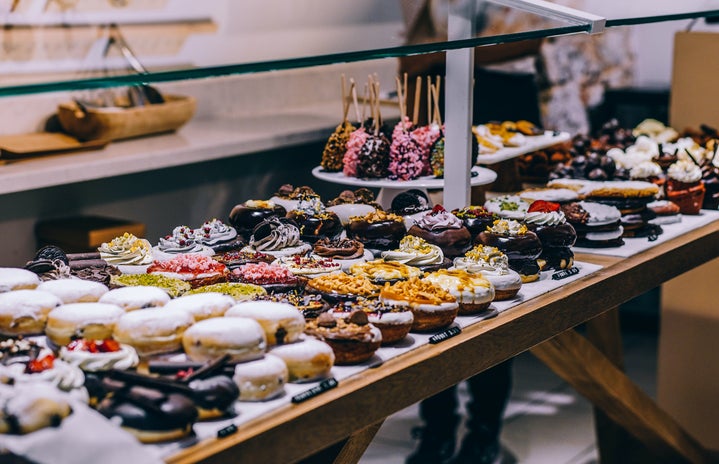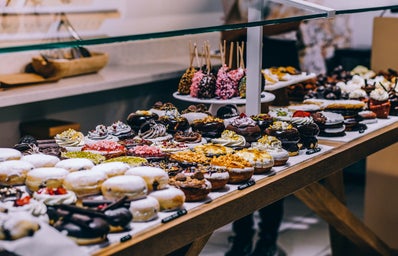Bread making is a daunting task.
Before I made my first loaf of bread, I really had no clue how to properly do so, how yeast worked, what it all involved, etc. I went in with the first recipe I found online and prayed it would work. It did, but it would have been nice to have some idea of what I was doing.
Pro tip: If you’re looking for a beginner friendly recipe, the best way to find one is to google “beginner bread recipe.” Look through a few recipes before selecting one and go with one that uses all-purpose flour. I personally prefer using traditional yeast as well since it’s simple to use and easy to find in grocery stores.
Once you have a recipe, make sure you don’t have plans to leave your house. It took me a total of five hours the first time I made bread. Now, that’s not to say that I spent five hours making the bread – it was five hours including prepping, proofing and baking. This was because of the type of bread I chose to make my first time around. The bread I make nowadays takes about three hours for the entire process, and I’ve made it so much that I memorized the recipe.
Pro tip: Have your ingredients and tools ready. You might think one bowl is enough or that you don’t need to have your flour out quite yet. You do, you always do, and by the time you realize it, it’ll take you fifteen minutes just to get chunks of dough off your hands.
There’s only been one time I truly messed up a loaf I was making. It was the second time I was making bread in my apartment and I used boiled water to activate my yeast. Turns out I killed it. My dough ended up being super dense and wouldn’t cook all the way through. When I gave up on the loaf and tried to make croutons with it, I still couldn’t get it to cook properly and ultimately had to throw it all away.
Pro tip: If you wouldn’t wash your hands with the water at a certain temperature, don’t activate your yeast with it. Save yourself the trouble and disappointment. For reference, yeast will begin to die off at 120 degrees Fahrenheit.
So, you’ve gathered all your supplies, found an easy recipe and you think you’re ready to make bread…
Go for it! One of the most important things I’ve learned while making my own bread is that even if people say baking is an exact science, it can be pretty forgiving. I’ve mixed in cinnamon without issue, I’ve proofed my bread for longer than suggested because it said I could if I really wanted to and I really wanted to (read: I forgot I was making it). Eventually, you get a feel for it and you stop using a recipe. Or maybe you don’t. You won’t know until you try it.
Personally, I find baking bread to be incredibly enjoyable and people are always impressed. Then I pull out my ten kilogram bag of flour and they think I’m crazy, but I went through a regular bag in less than a month just by baking bread.
It’s kind of addictive.
So, go forth in your bread baking endeavours and a final word of advice: Don’t eat the raw dough, it’s gross and you’re going to regret it.


